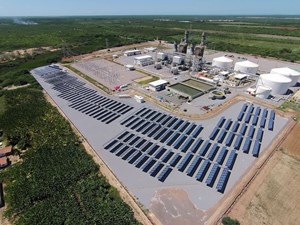News
Petrobras will invest $18 MM in research into sustainable hydrogen
Petrobras signed a Cooperation Agreement with the Senai Institute for Renewable Energy (ISI-ER) for the construction of a pilot electrolysis plant to study the sustainable H2 chain (low carbon). The objective is to evaluate the production and use of H2 produced from the electrolysis of water, using solar energy. Installations from Petrobras' Alto Rodrigues Photovoltaic Plant, in the state of Rio Grande de Norte, will be used.
The plant, originally built for research and development purposes, will be expanded from 1.0 megawatt peak (MWp) to 2.5 MWp, to meet the electrical demand of the pilot electrolysis unit to be installed. The H2 produced will also be used to evaluate the performance and structural integrity of microturbines due to the combustion of mixtures of H2 and natural gas. The project is expected to last three years and involve $18 MM.
“Among the benefits for the company are the development of knowledge about the behavior of equipment depending on the mixture of H2 and natural gas, aiming at business models of interest to the company. This is yet another initiative that will contribute to the analysis of the economic viability of projects for the production of low-carbon H2 and its derivatives,” said Jean Paul Prates, president of Petrobras.
“One of the big themes in relation to low-carbon H2 is the operation of electrolysis technology directly connected to the renewable energy source, with its intermittent characteristics. One of the objectives of this project is to advance our knowledge about this type of operation,” said Maurício Tolmasquim, director of Energy Transition and Sustainability.
“Petrobras and Senai ISI-ER of Rio Grande do Norte are long-time strategic partners in various areas of research and development on topics related to renewable energy and H2, highlighting the institute’s expertise in wind and solar energy, highlights the Director of Engineering, Technology and Innovation, Carlos Travassos.


